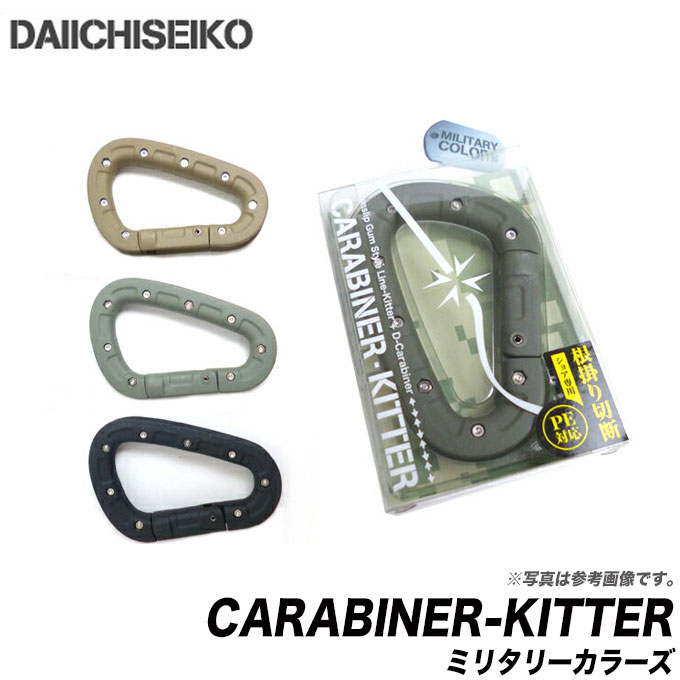
It really does seem to protect thinner lines very well when I have to break a lure off.
|
||
|
HOME
|
TACKLETOUR FORUMS |
EDITOR'S CHOICE |
REVIEW ARCHIVE |
ABOUT US |
|
||
|
Latest Articles: Reels | Rods | Lures | Swimbaits | Lines | Terminal Tackle | Tools | Storage | Apparel | Enthusiast | Watercraft | Interviews | Events | Autopsy |




|




|




That is a really good point. It does depend on the line you're using.DirtyD64 wrote: ↑Tue Apr 16, 2019 12:23 amPulling too hard with a lot of fluorocarbon out (10-20 yards) can really weaken it, especially on lighter lines. When I first started fishing I used 7lb FC Sniper on a few spinning reels and used to pull till it snapped on snags. I started finding the line weaker and weaker then realized I was damaging even the healthy looking parts of the line, particularly what was left out during freeing up or breaking off a snag. I have never had gears go bad, but ruined plenty of fresh 20 yard sections of fluorocarbon, cut 2-3 of those off and you might as well change the spool.
Mistake I made more than a few times. When I bank fish and happen to be using fluorocarbon, I get as absolute close as possible to snap it, a dowel can help prevent damage to the rest of the line. Sometimes if I can get really close I just cut it off to save the structure of the rest of the line. I have been lucky though and am very careful with gear, not sure if anyone would believe it, but I have NEVER been broken by a fish during a fight, neither has my wife. Broke on a couple of hooksets in heavy cover, but I am pretty sure it was the elusive stump-bass. When I fish with my father, who does the cheap gear/line/etc. he normally breaks off about one every few trips, and sadly it could leave a bait in a fish's mouth. He does the old school mono line and drag break neck tight style of fishing.mark poulson wrote: ↑Tue Apr 16, 2019 7:13 amThat is a really good point. It does depend on the line you're using.DirtyD64 wrote: ↑Tue Apr 16, 2019 12:23 amPulling too hard with a lot of fluorocarbon out (10-20 yards) can really weaken it, especially on lighter lines. When I first started fishing I used 7lb FC Sniper on a few spinning reels and used to pull till it snapped on snags. I started finding the line weaker and weaker then realized I was damaging even the healthy looking parts of the line, particularly what was left out during freeing up or breaking off a snag. I have never had gears go bad, but ruined plenty of fresh 20 yard sections of fluorocarbon, cut 2-3 of those off and you might as well change the spool.
I typically fish heavier braid, 50-80lb, with a short 20lb fluoro leader at times, so I can winch on a stuck lure without worrying about ruining my line. I would never do that with lighter line, especially lighter fluorocarbon.

One thing you can do if you can't get close is break it off and then go home and flip the line around.mark poulson wrote: ↑Tue Apr 16, 2019 7:13 amThat is a really good point. It does depend on the line you're using.DirtyD64 wrote: ↑Tue Apr 16, 2019 12:23 amPulling too hard with a lot of fluorocarbon out (10-20 yards) can really weaken it, especially on lighter lines. When I first started fishing I used 7lb FC Sniper on a few spinning reels and used to pull till it snapped on snags. I started finding the line weaker and weaker then realized I was damaging even the healthy looking parts of the line, particularly what was left out during freeing up or breaking off a snag. I have never had gears go bad, but ruined plenty of fresh 20 yard sections of fluorocarbon, cut 2-3 of those off and you might as well change the spool.
I typically fish heavier braid, 50-80lb, with a short 20lb fluoro leader at times, so I can winch on a stuck lure without worrying about ruining my line. I would never do that with lighter line, especially lighter fluorocarbon.

That is a smart idea.poisonokie wrote: ↑Wed Apr 17, 2019 6:18 amOne thing you can do if you can't get close is break it off and then go home and flip the line around.mark poulson wrote: ↑Tue Apr 16, 2019 7:13 amThat is a really good point. It does depend on the line you're using.DirtyD64 wrote: ↑Tue Apr 16, 2019 12:23 amPulling too hard with a lot of fluorocarbon out (10-20 yards) can really weaken it, especially on lighter lines. When I first started fishing I used 7lb FC Sniper on a few spinning reels and used to pull till it snapped on snags. I started finding the line weaker and weaker then realized I was damaging even the healthy looking parts of the line, particularly what was left out during freeing up or breaking off a snag. I have never had gears go bad, but ruined plenty of fresh 20 yard sections of fluorocarbon, cut 2-3 of those off and you might as well change the spool.
I typically fish heavier braid, 50-80lb, with a short 20lb fluoro leader at times, so I can winch on a stuck lure without worrying about ruining my line. I would never do that with lighter line, especially lighter fluorocarbon.


I think aluminum gears is a big part of it. I've had big catfish and carp make a baitcaster's aluminum gears feel rough after a long fight, where I had to really winch on them to get them to the boat.ShimanoFan wrote: ↑Wed Apr 17, 2019 9:38 amI've been trying to follow this one...
In all my years of fishing I never ruined any gears pulling a snag loose, but I do it in a way that does not cause damage to my baitcast reels and rods.
A spinning reel is different because of design. Too heavy of line on a reel can bend the main shaft if yanked or pulled on too much. Gotta treat these differently.
Over 45 plus years of fishing and never had any trouble like I read in this thread. Then again, I don't use reels with aluminum gears... might be part of it.

Aluminum is soft... like butter as far as metals go. Does not take much to bend it. And with micro gears becoming more popular, it was bound to happen...mark poulson wrote: ↑Wed Apr 17, 2019 9:52 am
I think aluminum gears is a big part of it. I've had big catfish and carp make a baitcaster's aluminum gears feel rough after a long fight, where I had to really winch on them to get them to the boat.
I switched 8 of my Smoke Burners to brass main gears, and no more worries.
I might be mistaken but isn’t brass considered to be softer than aluminum? If so then why do we only ever hear about aluminum gears going bad but brass gears lasting forever?ShimanoFan wrote: ↑Wed Apr 17, 2019 10:08 amAluminum is soft... like butter as far as metals go. Does not take much to bend it. And with micro gears becoming more popular, it was bound to happen...mark poulson wrote: ↑Wed Apr 17, 2019 9:52 am
I think aluminum gears is a big part of it. I've had big catfish and carp make a baitcaster's aluminum gears feel rough after a long fight, where I had to really winch on them to get them to the boat.
I switched 8 of my Smoke Burners to brass main gears, and no more worries.
Built in obsolescence.

Well, my brass gears hold up for decades if not abused. I have no idea if aluminum will as I don't have reels with aluminum gears. Dont want any either! But on the hardness scale aluminum rates 2 to 2.9 while brass rates 3 to 4.